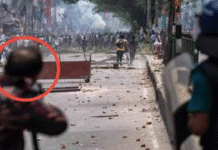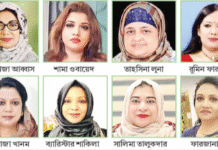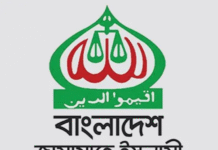Closing the charge framing arguments for and against war crimes accused Maulana Abdus Sobhan, a top leader of Jamaat-e-Islami, the International Crimes Tribunal-1 on Sunday set December 18 for order on indictment.
Moving a discharge plea, defence counsel Barrister Abdur Razzaq told the tribunal that the formal charges against accused Sobhan appear insufficient and suffer from factual lacking as those are not specific.
Referring to the documents, he said no material fact is available against the Jamaat leader. Indictment has not been specified in particular charge.
The defence counsel further said the prosecution could not fulfill the elements required for proving the allegations against Sobhan in the formal charge.
Opposing the defence plea, designated prosecutor Sultan Mahmud Simon said the prosecution has submitted proper documents and papers over the formal charge against Sobhan, which will be able to prove the charges brought against the accused through trial.
Perusing the formal charge along with relevant statements and documents submitted by the prosecution, the tribunal on September 19 took cognisance of the formal charge as it found a strong prima facie case against the accused under section 3(2), 4(1) and 4(2) of the International Crimes (Tribunals) Act 1973.
Sobhan, the number three man in the Jamaat-e-Ialami hierarchy, faces nine allegations of 1971 war crimes, including conspiracy, genocide, arson, abduction and looting. Some 43 people have been made prosecution witness in the case.
On September 20, 2012, Sobhan was held by the members of an army intelligence agency at Bangabandhu Bridge toll plaza in Tangail in connection with a case of violence. Later, the accused was handed over to the police.
The tribunal, upon a prosecution plea, had shown Sobhan arrested in connection with the case of the 1971 crimes against humanity.
According to the prosecution, it received allegations like genocide, rape, arson and looting perpetrated by Sobhan, the then leader of Pabna Peace Committee (collaborator) and Pabna district Jamaat ameer, in collaboration with Pakistan occupation forces, including Razakar, Al Badr and Al Shams, during the Liberation War.
Detained Sobhan had allegedly played a key role in organising Razakar, Al Badr and Al Shams, the auxiliary forces of the junta, in Pabna district.
Source: UNBConnect










